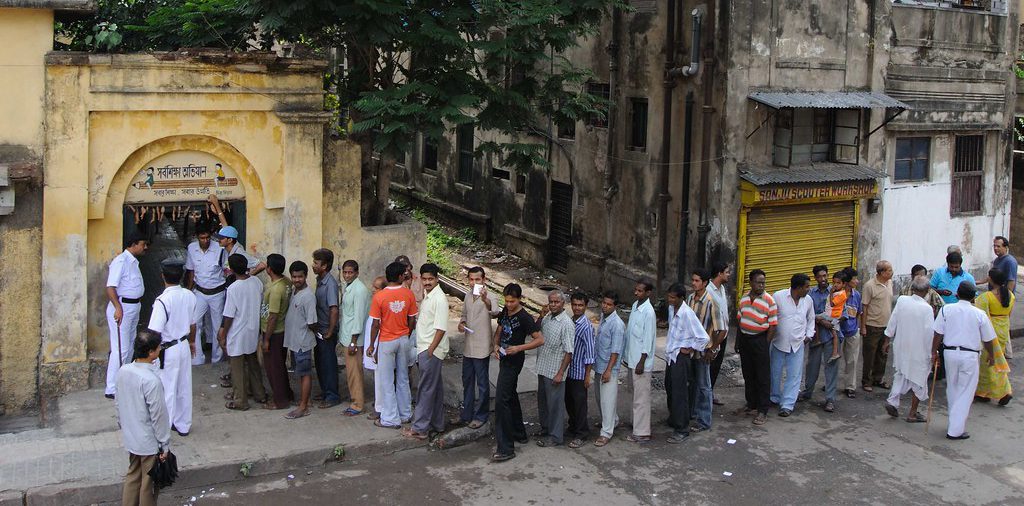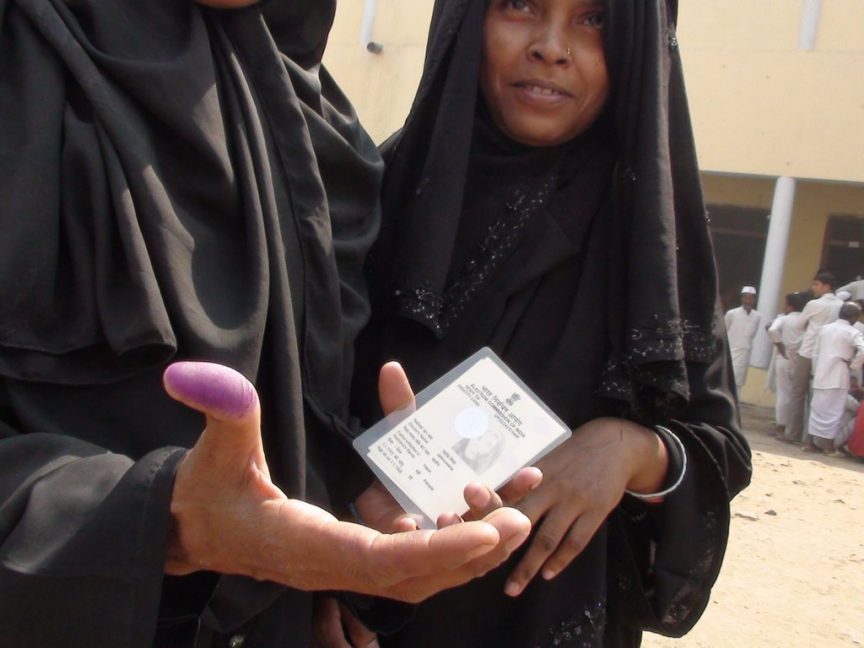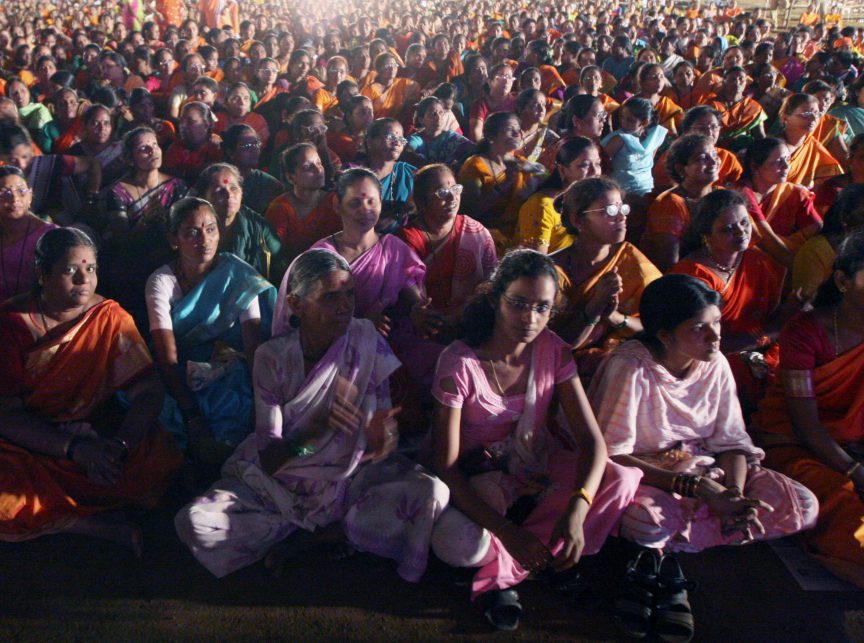India Elections: How Modi Has Promoted Anti-Muslim Hatred and Is Using It to Secure Re-Election
by Zara Patel
10 May 2019

India is in the throes of the biggest election the world has ever seen, with 900 million people expected to cast their vote in the seven-phase ballot. The result will be announced on 23 May.
The tenure of current Prime Minister Narendra Modi, of the Bharatiya Janata Party (BJP), has proved controversial. When he was elected in 2014, Modi promised the nation that acche din (good days) had arrived.
However this is not a promise that has translated to all Indians.
Already in the course of this election a Dalit man who accidentally voted for the BJP chopped his finger off in anger, so upset was he at his mistake and the prospect of another five years of Modi.
The BJP is the political face of a wider web of Hindu nationalist organisations, varying in extremity, who believe in Hindutva – the hegemony of Hindus, Hindu values, and the Hindu way of life.
Just last week BJP party president Amit Shah compared Bangladeshi Muslim immigrants to ‘termites’; Islam, according to government minister Anant Kumar Hegde, is a ‘bomb for world peace’, and the Chief Minister of Utter Pradesh, India’s biggest state, Yogi Adityanath, was suspended from campaigning for three days because of an anti-Muslim comment.
India is home to the world’s third biggest Muslim population but under Modi’s leadership hate speech by high-profile politicians has increased almost 500%, according to an analysis by Indian media company NDTV.

When the official representatives of the ruling party propagate such an exclusive view of the Indian nation, is it any wonder 92% of Indian Muslims voted against the BJP in 2014?
Over the last five years, through marginalising rhetoric and targeted campaigns, communal tension has been stoked for political gain at the expense of minority communities, in particular Muslims.
‘Love jihad’, for example, is a campaign that claims Muslim men are tricking Hindu women into falling in love and marrying them so they can get them to convert to Islam.
The idea that the Muslim population is a threat to the majority Hindu population is a trope perpetrated by BJP politicians. They play on the idea that Muslim men are duping vulnerable Hindu women into marriage so they can have lots of children and thus pose a threat to the future Hindu population.
In India’s cities, ‘Anti-Romeo squads’ – policing groups ostensibly employed to stop street harassment – often actively target and attempt to deter interfaith couples, monitoring young people in particular. The initiative is endorsed by UP Chief Minister Adityanath.
One undercover investigation found couples suspected of engaging in love jihad are physically separated from one another and the women are heavily pressured to report their Muslim husband to authorities.
Non-compliant women in Kerala were found to have been drugged and kept in cells; other approaches include religious counselling to try and brainwash them to leave their husband with several of the initial rape or coercion charges made by women later found to be untrue.
Similarly, the campaign of Ghar Wapsi – which literally means ‘to come home’ – implies India is a Hindu country and that conversion from Hinduism is unnatural.
Indian Muslims and Christians are urged to ‘reconvert’ to Hinduism. BJP members have hinted at withdrawing the policy of Below Poverty Line cards (a welfare initiative) for disadvantaged Christians and Muslims unless they take part.
Their current religious status is alleged as a dilution of Indian identity, and one that has alarmingly decreased the Hindu population.
This campaign is not new, but since the Modi administration has entered power, its rhetoric has strengthened and become more overtly hostile.
The government stance is also fiercely in favour of anti-conversion legislation, so conversions can only take place with their approval.
This legislation can be manipulated by the government to restrict religious liberties as its wording is intentionally ambiguous. The constitutional provision that allows one to freely practice religion is inapplicable if it can be proved that the conversion was caused by “fraud” or “allurement”.
Christian charitable and educational organisations are often accused of fraudulent behaviour, when in reality accusations are no more than a guise to prevent people from practising their own religion.

Religiously motivated violence against Muslims has also risen under Modi’s leadership.
The cow (gau) is a sacred animal in Hinduism, and has long been deployed to represent Hindu nationalism.
In presenting the cow as a national icon of Hinduism, however, minority groups in India – namely Muslims and Dalits working in the cattle trade – are susceptible to accusations of being “anti-nationalist”.
Cow-related lynching is a tactic used to ignite feelings of Hindu nationalism.
Since the BJP assumed power, cow vigilantism – the killing of people suspected of slaughtering cows and eating beef – has risen by 97% as cow vigilantes have become emboldened.
There is a correlation between states where the BJP are in power and higher rates of cow vigilantism.
An innocent man, Mohammed Akhlaq, was lynched by a mob in 2015, suspected of eating and keeping beef in his home, later found to be mutton; this is only one example of the many hateful, vicious killings of Muslims and Dalits that have come to characterise the last five years
The issue of cow slaughter demonstrates the clear contradictions in the BJP agenda. Banning cow slaughter poses an enormous risk to India’s position as the second largest beef exporter in the world and the second largest exporter of leather.
Given Modi came to power on an alleged development agenda, it demonstrates that his communal politics outweighs this.